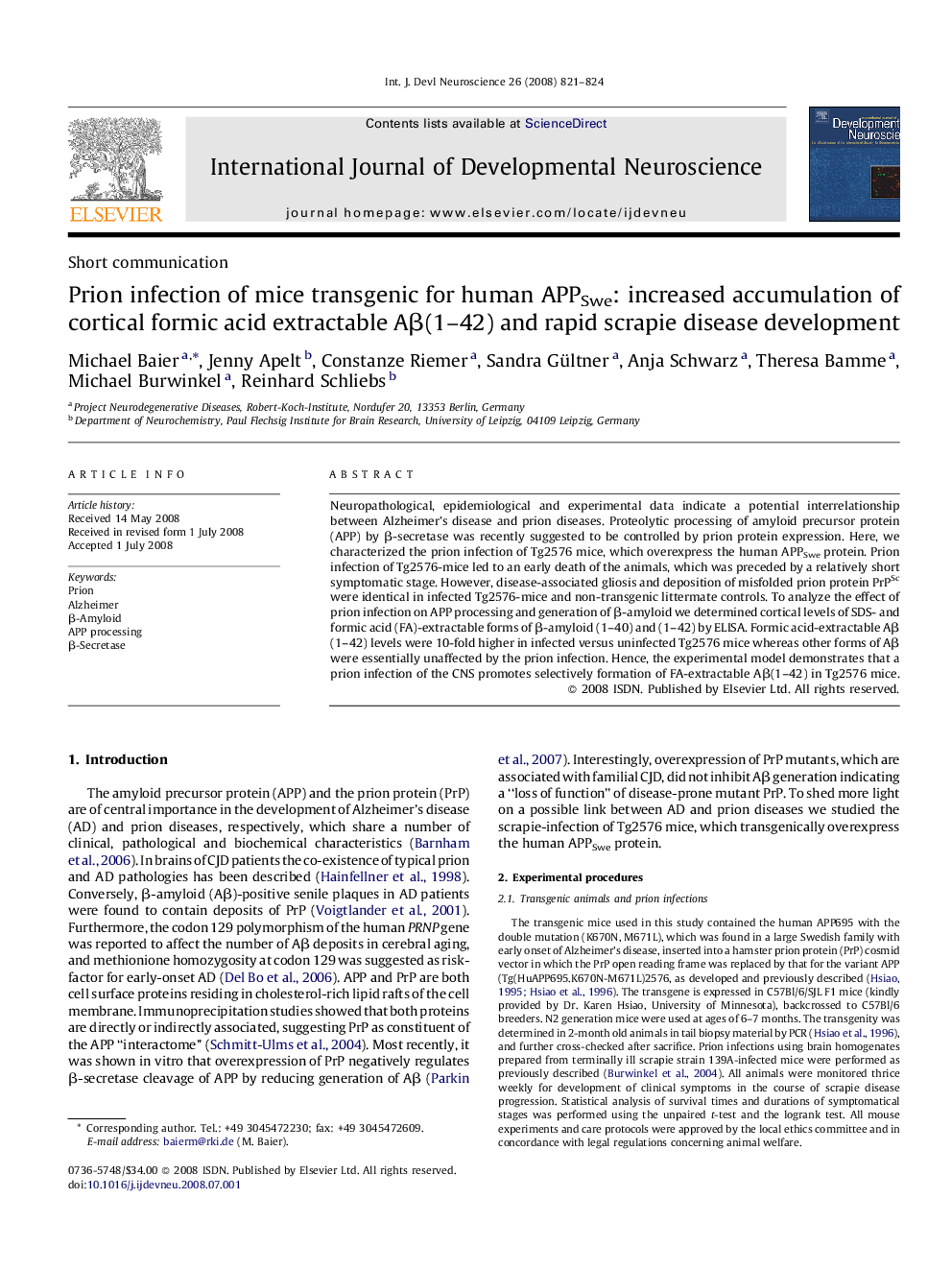| Article ID | Journal | Published Year | Pages | File Type |
|---|---|---|---|---|
| 2786998 | International Journal of Developmental Neuroscience | 2008 | 4 Pages |
Neuropathological, epidemiological and experimental data indicate a potential interrelationship between Alzheimer's disease and prion diseases. Proteolytic processing of amyloid precursor protein (APP) by β-secretase was recently suggested to be controlled by prion protein expression. Here, we characterized the prion infection of Tg2576 mice, which overexpress the human APPSwe protein. Prion infection of Tg2576-mice led to an early death of the animals, which was preceded by a relatively short symptomatic stage. However, disease-associated gliosis and deposition of misfolded prion protein PrPSc were identical in infected Tg2576-mice and non-transgenic littermate controls. To analyze the effect of prion infection on APP processing and generation of β-amyloid we determined cortical levels of SDS- and formic acid (FA)-extractable forms of β-amyloid (1–40) and (1–42) by ELISA. Formic acid-extractable Aβ (1–42) levels were 10-fold higher in infected versus uninfected Tg2576 mice whereas other forms of Aβ were essentially unaffected by the prion infection. Hence, the experimental model demonstrates that a prion infection of the CNS promotes selectively formation of FA-extractable Aβ(1–42) in Tg2576 mice.
